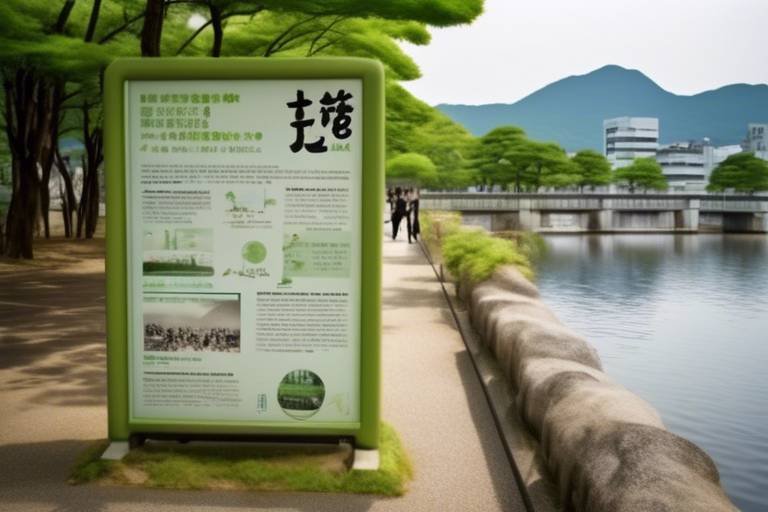Eco-Friendly Ways to Enjoy Italy’s Venice
When it comes to exploring Venice, Italy, in an eco-friendly way, there are plenty of options that allow you to enjoy the beauty of this iconic city while minimizing your environmental impact. From public transportation to sustainable dining and waste reduction practices, there are various ways to make your visit to Venice more sustainable and responsible.
One of the best ways to reduce your carbon footprint in Venice is by utilizing the city's efficient vaporetto system. These water buses not only provide a convenient way to navigate the city's waterways but also help reduce the emissions caused by traditional modes of transportation. By opting for the vaporetto and other eco-friendly transport options, you can explore Venice while treading lightly on the environment.
For those who prefer a more leisurely pace, walking and cycling are excellent options to experience Venice's charm while promoting eco-friendly modes of transportation. The city's pedestrian-friendly areas and cycling paths offer a unique perspective of Venice, allowing you to immerse yourself in its beauty while staying environmentally conscious.
When it comes to dining in Venice, opting for local and organic restaurants is a great way to support sustainable food practices. By sampling delicious cuisine made from locally sourced and organic ingredients, you not only get a taste of authentic Venetian flavors but also contribute to reducing the carbon footprint associated with food transportation.
Waste reduction is another crucial aspect of sustainable travel in Venice. By learning about waste management initiatives and implementing simple tips to reduce plastic usage, you can help keep the city's canals and streets clean and pristine. Small changes in daily habits, such as carrying a reusable water bottle or shopping bag, can make a significant difference in minimizing waste.
Choosing eco-conscious accommodations is essential for a truly sustainable travel experience in Venice. By selecting hotels and lodgings that prioritize sustainability and environmental conservation efforts, you can support businesses that are committed to reducing their impact on the environment. From energy-efficient practices to waste reduction initiatives, eco-friendly accommodations play a vital role in promoting responsible tourism.
Exploring the green spaces of Venice offers a refreshing escape from the bustling city streets. Parks, gardens, and nature reserves in and around Venice provide a sanctuary for both locals and visitors to appreciate the natural beauty of the region. By supporting green initiatives and enjoying the tranquility of these green spaces, you can connect with nature while contributing to environmental conservation.
Engaging in conservation activities and volunteer programs in Venice is a meaningful way to give back to the community and contribute to the preservation of the city's cultural and environmental heritage. Whether participating in beach clean-ups, restoration projects, or educational programs, getting involved in conservation efforts allows you to make a positive impact on Venice's sustainability.
Respecting the local wildlife is crucial when exploring Venice's lagoon ecosystem. By learning about the diverse species that call the lagoon home and practicing responsible tourism, you can help protect the natural habitats of native wildlife. From birds to marine life, Venice's ecosystem is teeming with biodiversity that deserves our respect and conservation efforts.

Public Transportation Options
Exploring sustainable travel options and activities in Venice, Italy, to minimize environmental impact while enjoying the beauty and culture of this iconic city.
When it comes to getting around Venice in an eco-friendly way, the vaporetto system is a standout choice. These water buses not only provide efficient transportation along the city's waterways but also help reduce carbon emissions compared to traditional modes of transport. By opting for the vaporetto, you can enjoy the scenic views of Venice while contributing to a cleaner environment. Additionally, walking through the charming streets and alleys of Venice can be a delightful experience, allowing you to immerse yourself in the city's unique atmosphere while minimizing your carbon footprint.
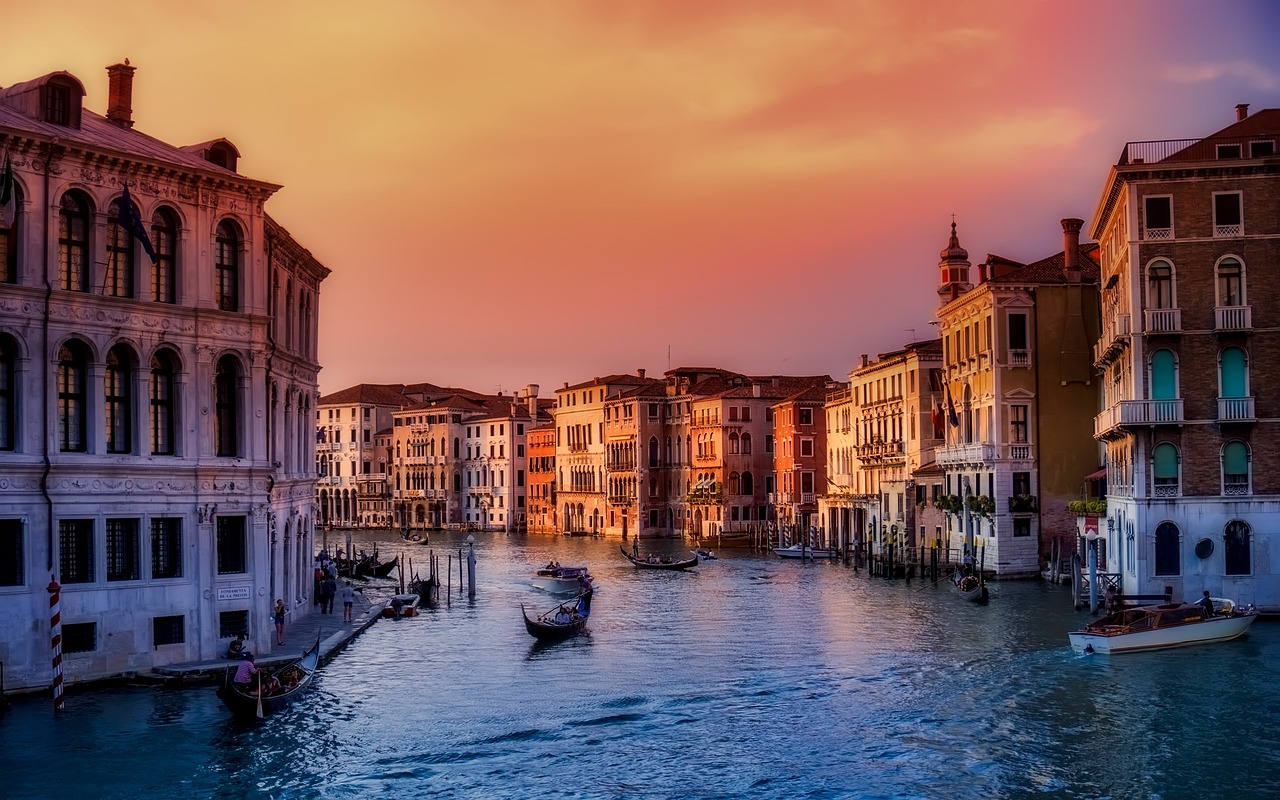
Walking and Cycling Routes
When exploring the enchanting city of Venice, ditching the traditional modes of transportation and opting for walking or cycling can truly enhance your experience. Picture yourself strolling along the narrow cobblestone streets, crossing quaint bridges, and admiring the intricate architecture up close. It's like stepping into a painting where every corner holds a new surprise.
Venice's pedestrian-friendly areas beckon you to meander at your own pace, soaking in the sights and sounds of this unique city. You can stumble upon hidden gems, cozy cafes, and charming boutiques that are easily missed when zooming by in a water taxi. It's a journey filled with unexpected discoveries and delightful encounters, making each step a part of the adventure.
If you're feeling a bit more adventurous, cycling through Venice can be an exhilarating experience. Imagine gliding along the waterfront promenades, feeling the gentle breeze off the canals, and witnessing the city's beauty unfold before your eyes. It's a dynamic way to explore different neighborhoods, from the bustling squares to the tranquil alleyways, all while reducing your carbon footprint and immersing yourself in the local rhythm.
By choosing to walk or cycle in Venice, you not only embrace a sustainable way of sightseeing but also connect more intimately with the city's essence. You become part of the bustling tapestry of daily life, blending in with the locals and experiencing Venice in a way that transcends the ordinary tourist experience. So, lace up your walking shoes or hop on a bike, and let Venice's streets and canals lead you on a memorable journey of discovery.
**Frequently Asked Questions:** 1. **Is Venice a pedestrian-friendly city?** - Yes, Venice is known for its pedestrian-friendly layout, with many areas accessible only by foot or boat. 2. **Are there designated cycling paths in Venice?** - While Venice is not primarily designed for cycling, there are some cycling routes and paths available for those who prefer biking. 3. **How can I contribute to sustainability while walking or cycling in Venice?** - You can support sustainability efforts by choosing eco-friendly accommodations, dining at local and organic restaurants, and participating in waste reduction practices during your visit.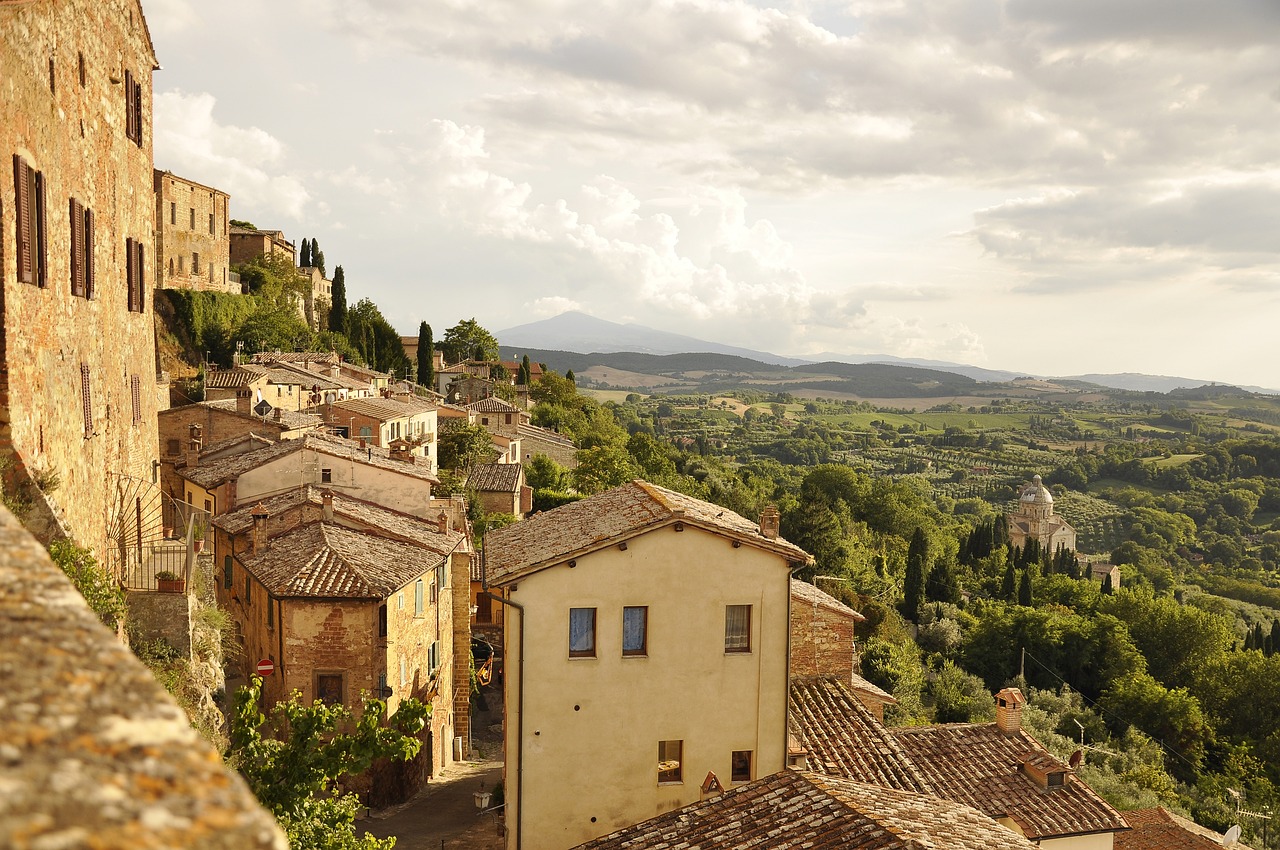
Local and Organic Dining
When it comes to dining in Venice, indulging in local and organic cuisine is not only a treat for your taste buds but also a sustainable choice that supports the environment and local producers. Venice boasts a variety of restaurants and eateries that prioritize using locally sourced and organic ingredients in their dishes. By choosing to dine at these establishments, you not only get to savor the authentic flavors of Venetian cuisine but also contribute to the preservation of traditional farming practices and the reduction of carbon emissions associated with food transportation.
Local and organic dining in Venice goes beyond just the food on your plate. It is a culinary experience that connects you with the region's rich agricultural heritage and promotes a more sustainable food system. Imagine savoring a dish made with freshly caught seafood from the Venetian lagoon, paired with organic vegetables grown in the nearby countryside. Each bite tells a story of the local farmers, fishermen, and artisans who work tirelessly to bring the freshest ingredients to your table.
Many restaurants in Venice take pride in showcasing the bounty of the Veneto region, known for its quality produce and culinary traditions. From farm-to-table eateries to cozy trattorias serving up authentic Venetian fare, there is no shortage of options for those seeking a taste of local and organic dining. By supporting these establishments, you not only enjoy a delicious meal but also contribute to the sustainability of Venice's food culture and ecosystem.
Moreover, opting for local and organic dining in Venice allows you to experience the true essence of the city's gastronomic scene. Whether you're sipping on a glass of prosecco made from grapes grown in the Veneto vineyards or indulging in a plate of risotto made with Carnaroli rice cultivated in the region, each dish reflects the terroir and traditions of Venice. It's a culinary journey that not only delights your palate but also nourishes your soul with the authenticity and integrity of locally sourced ingredients.
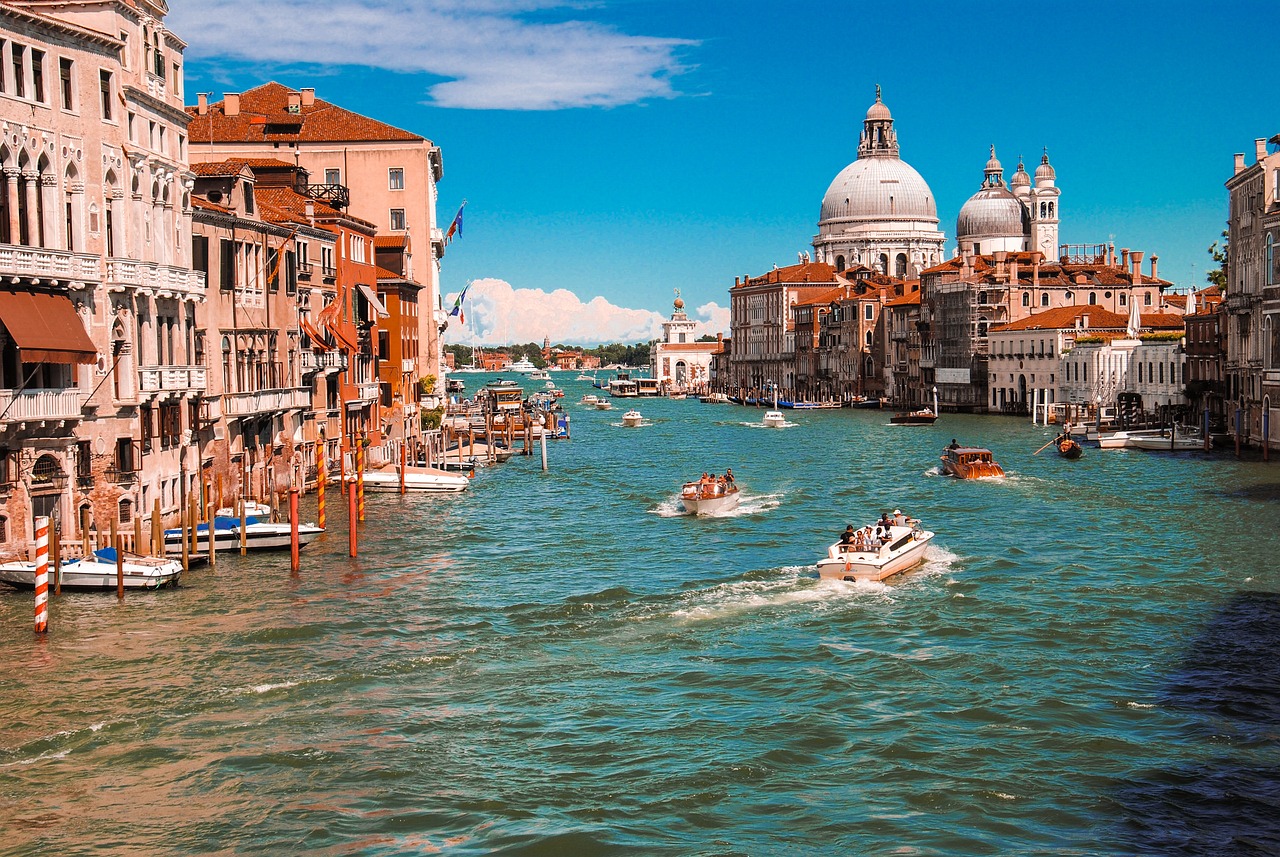
Waste Reduction Practices
When it comes to waste reduction practices in Venice, visitors can play a crucial role in preserving the city's unique environment. One effective way to minimize plastic waste is by carrying a reusable water bottle and opting for refill stations available throughout the city. By avoiding single-use plastics, travelers can significantly reduce their environmental impact and help keep Venice's canals clean.
Additionally, participating in organized clean-up events or volunteering with local environmental organizations can make a tangible difference in waste management efforts. These initiatives not only contribute to a cleaner Venice but also raise awareness about the importance of responsible waste disposal among residents and tourists alike.
Furthermore, supporting businesses that prioritize sustainable practices, such as using biodegradable packaging or implementing recycling programs, can encourage a more eco-conscious approach to waste reduction in Venice. By patronizing these establishments, visitors can actively support efforts to minimize waste generation and promote a greener city.
Another effective waste reduction practice is to be mindful of littering and always dispose of trash in designated bins. Proper waste disposal not only maintains the aesthetic appeal of Venice but also prevents harmful pollutants from entering the delicate ecosystem of the city's waterways and surrounding areas.
Moreover, educating oneself about the local waste management system and following guidelines for sorting recyclables can further contribute to reducing environmental impact. By separating waste correctly and supporting recycling initiatives, travelers can help mitigate the negative effects of excessive waste production on Venice's ecosystem.
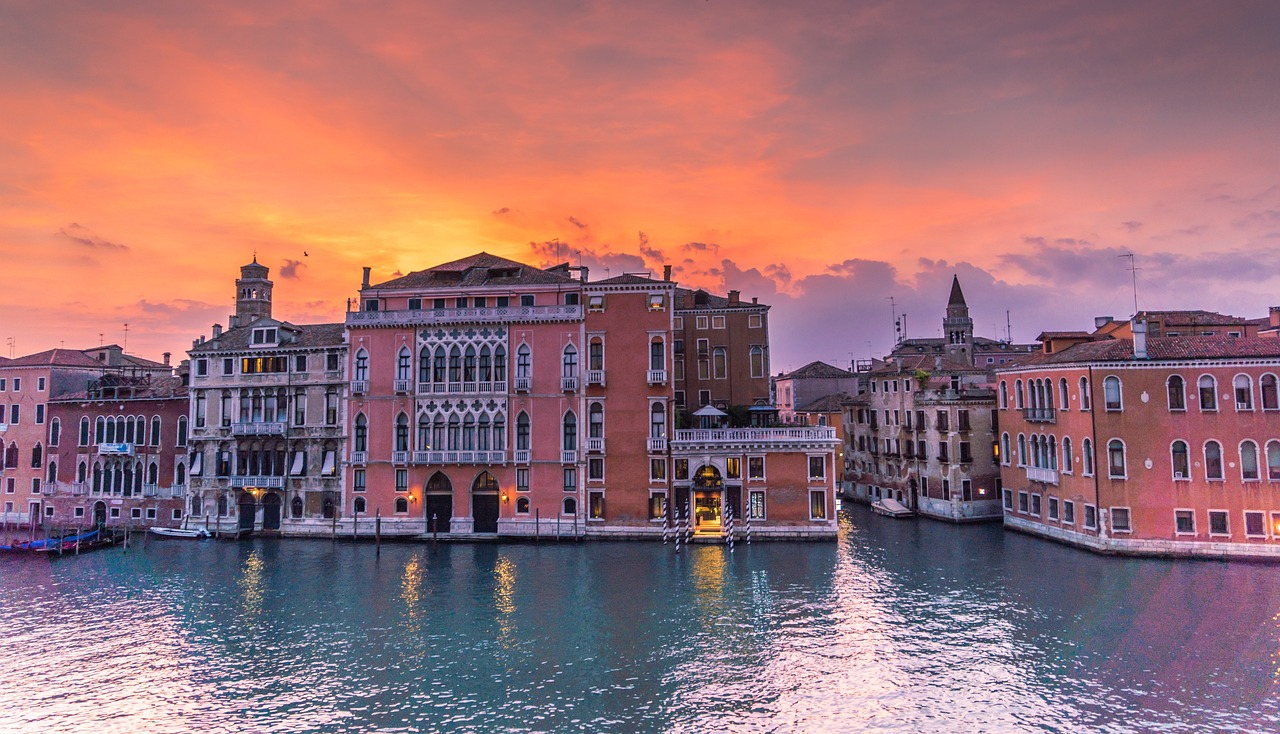
Supporting Eco-Friendly Accommodations
When it comes to supporting eco-friendly accommodations in Venice, travelers have a range of options that align with sustainable travel practices. Choosing to stay in eco-conscious hotels and accommodations not only enhances the overall travel experience but also contributes to environmental conservation efforts in the city.
These accommodations prioritize sustainability by implementing various eco-friendly initiatives such as energy-efficient lighting, water conservation measures, and waste reduction practices. By opting to stay in such establishments, visitors can actively support environmental conservation and reduce their carbon footprint during their stay in Venice.
Many eco-friendly accommodations in Venice also focus on locally sourced materials and organic amenities, offering guests a unique and environmentally conscious lodging experience. From bedding made from sustainable fabrics to organic toiletries, these establishments prioritize environmental sustainability without compromising on comfort and quality.
Additionally, eco-conscious hotels often engage in community initiatives and environmental projects to give back to the local area and promote sustainable tourism. Guests can participate in volunteer programs organized by these accommodations, furthering their contribution to preserving Venice's cultural and natural heritage.
By supporting eco-friendly accommodations in Venice, travelers not only enjoy a more conscious and responsible travel experience but also play a significant role in protecting the environment and preserving the beauty of this iconic city for future generations to appreciate.
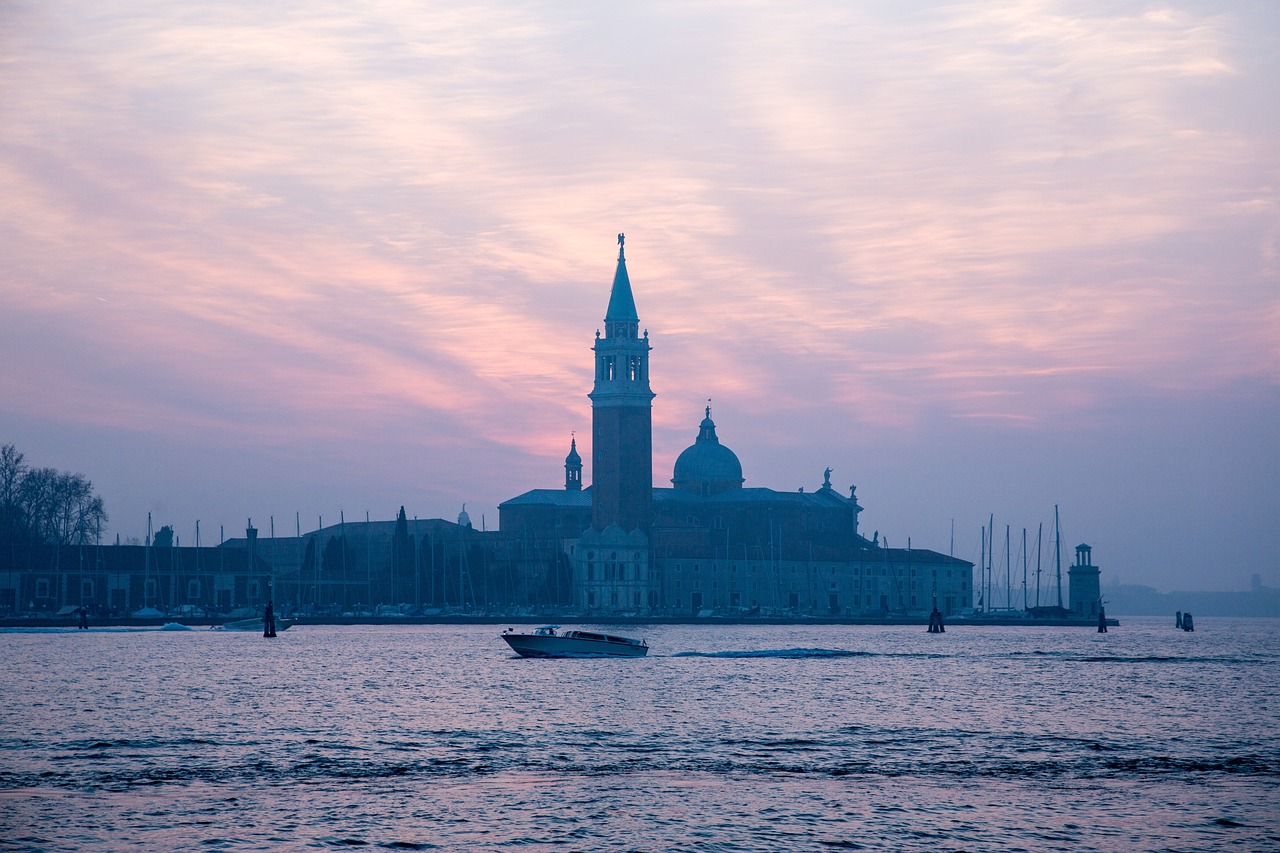
Exploring Green Spaces
When exploring Venice, don't miss the opportunity to immerse yourself in the lush green spaces scattered throughout the city. From charming parks to hidden gardens, Venice offers a serene escape from the bustling streets and crowded canals. These green oases not only provide a peaceful retreat for visitors but also play a vital role in supporting the local ecosystem and biodiversity.
One of the must-visit green spaces in Venice is the Giardini Pubblici, a historic park located near the entrance to the city. This verdant oasis features a variety of trees, flowers, and winding pathways perfect for a leisurely stroll or a relaxing picnic. Take a moment to breathe in the fresh air and admire the beauty of nature amidst the urban landscape.
For a more immersive experience, consider exploring the Orto Botanico di Padova, one of the oldest botanical gardens in the world, located just a short train ride from Venice. This botanical paradise showcases a diverse collection of plant species from around the globe, offering a glimpse into the fascinating world of botany and conservation.
As you wander through these green spaces, keep an eye out for local wildlife that calls Venice home. From colorful birds to playful squirrels, the city's green areas are teeming with biodiversity waiting to be discovered. Remember to respect the natural habitat of these creatures and observe them from a distance to minimize disturbance.
Additionally, take the time to learn about the environmental initiatives and sustainability efforts implemented in these green spaces. Many parks and gardens in Venice are actively involved in conservation projects aimed at preserving native flora and fauna, as well as promoting eco-friendly practices such as composting and water conservation.
By exploring Venice's green spaces, you not only have the opportunity to connect with nature in the heart of the city but also contribute to the preservation of these vital ecological havens. So, lace up your walking shoes, pack a picnic, and embark on a green adventure through Venice's hidden gems.

Participating in Conservation Activities
Participating in conservation activities in Venice is a rewarding way to give back to the city and contribute to its preservation. By engaging in volunteer programs and conservation projects, visitors can play a hands-on role in protecting Venice's cultural and environmental heritage. These activities not only help maintain the city's unique charm but also support initiatives that aim to ensure a sustainable future for Venice.
One notable conservation activity in Venice is the cleanup campaigns organized to keep the city's waterways and streets free of litter and debris. These initiatives bring together locals and visitors alike to work towards a cleaner and more sustainable Venice. Participants can join in litter collection efforts, recycling programs, and educational workshops focused on waste management and environmental stewardship.
Another way to get involved in conservation activities is by participating in restoration projects aimed at preserving Venice's historic buildings and landmarks. Volunteers can assist with the maintenance and restoration of architectural treasures, helping to safeguard the city's rich cultural heritage for future generations. These projects offer a hands-on experience in heritage conservation and provide insight into the intricate craftsmanship that defines Venice's architectural legacy.
Furthermore, visitors interested in marine conservation can take part in ecological monitoring programs focused on preserving Venice's lagoon ecosystem. By collaborating with local environmental organizations, participants can contribute to research efforts aimed at protecting the diverse wildlife and habitats that call the lagoon home. These programs offer a unique opportunity to learn about the importance of biodiversity conservation and the challenges facing Venice's delicate ecosystem.
In addition to hands-on conservation activities, visitors can also support educational initiatives that promote environmental awareness and sustainability in Venice. By attending workshops, lectures, and guided tours led by local experts, participants can deepen their understanding of the city's ecological challenges and learn how to adopt more eco-friendly practices in their daily lives. These educational opportunities foster a sense of environmental responsibility and empower individuals to make a positive impact on Venice's environment.

Respecting Local Wildlife
When it comes to exploring Venice's natural wonders, it is crucial to respect the local wildlife and ecosystems that call this unique city home. The lagoon ecosystem of Venice is teeming with diverse species, from fish and birds to plants and marine life. By practicing responsible tourism and being mindful of your impact on the environment, you can help protect these habitats and ensure the well-being of the wildlife.
One way to respect local wildlife is to avoid feeding or disturbing animals in their natural habitats. While it may be tempting to interact with the wildlife, it is important to remember that these creatures are best left undisturbed to maintain their natural behaviors and habitats. Additionally, refraining from littering and properly disposing of trash can help prevent harm to wildlife and preserve the cleanliness of their environments.
Another important aspect of is to educate yourself about the species that inhabit Venice's lagoon and surrounding areas. By learning about the native wildlife and their habitats, you can gain a greater appreciation for the natural diversity of the region and understand the importance of conservation efforts.
Participating in eco-friendly activities that support wildlife conservation can also be a rewarding way to contribute to the preservation of Venice's natural heritage. Joining guided tours or volunteering with local conservation organizations can provide valuable insights into the challenges facing local wildlife and the efforts being made to protect them.
Additionally, when exploring the waterways and green spaces of Venice, it is essential to follow designated paths and respect any signs or guidelines aimed at protecting wildlife. By staying on designated trails and observing any restrictions in place, you can help minimize your impact on the environment and ensure the safety of the local wildlife.
In conclusion, in Venice is not only a matter of ethical responsibility but also a way to enhance your travel experience by connecting with the natural world around you. By being mindful of your actions and choices, you can contribute to the conservation of Venice's unique ecosystems and help preserve the beauty and biodiversity of this iconic city.
Frequently Asked Questions
- What are some eco-friendly transportation options in Venice?
In Venice, you can utilize the efficient vaporetto system, walk through pedestrian-friendly areas, or explore cycling routes to reduce your carbon footprint and enjoy sustainable travel.
- How can I support sustainable dining practices in Venice?
You can support local and organic dining in Venice by choosing restaurants that prioritize locally sourced and organic ingredients, contributing to sustainable food practices and reducing environmental impact.
- What waste reduction practices can I adopt while visiting Venice?
To help keep Venice clean and pristine, you can learn about waste management initiatives, reduce plastic usage, and participate in efforts to minimize waste generation during your visit.
- How can I choose eco-friendly accommodations in Venice?
By selecting eco-conscious hotels and accommodations that prioritize sustainability and environmental conservation efforts, you can support responsible tourism and contribute to Venice's environmental well-being.
- What conservation activities can I participate in while in Venice?
You can engage in volunteer programs and conservation projects in Venice to contribute to the preservation of the city's cultural and environmental heritage, supporting efforts to protect its unique ecosystem.



